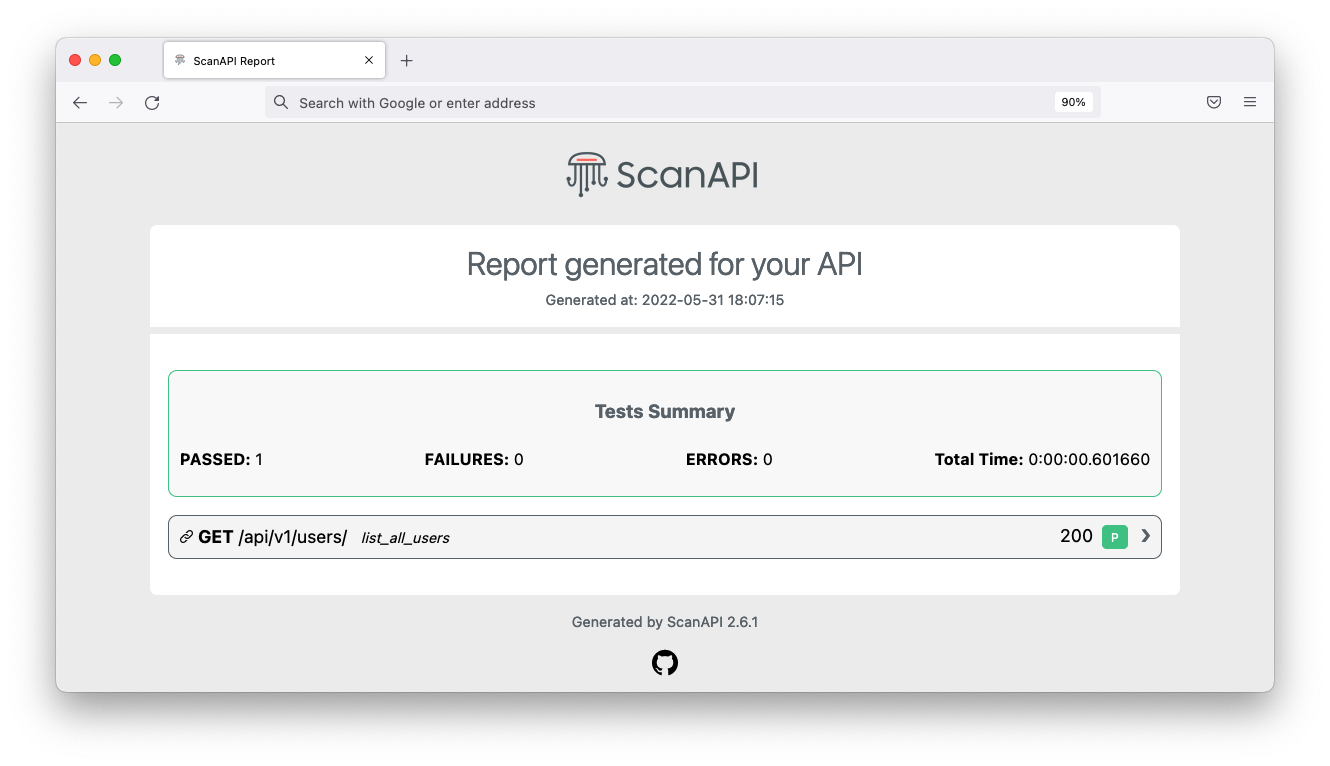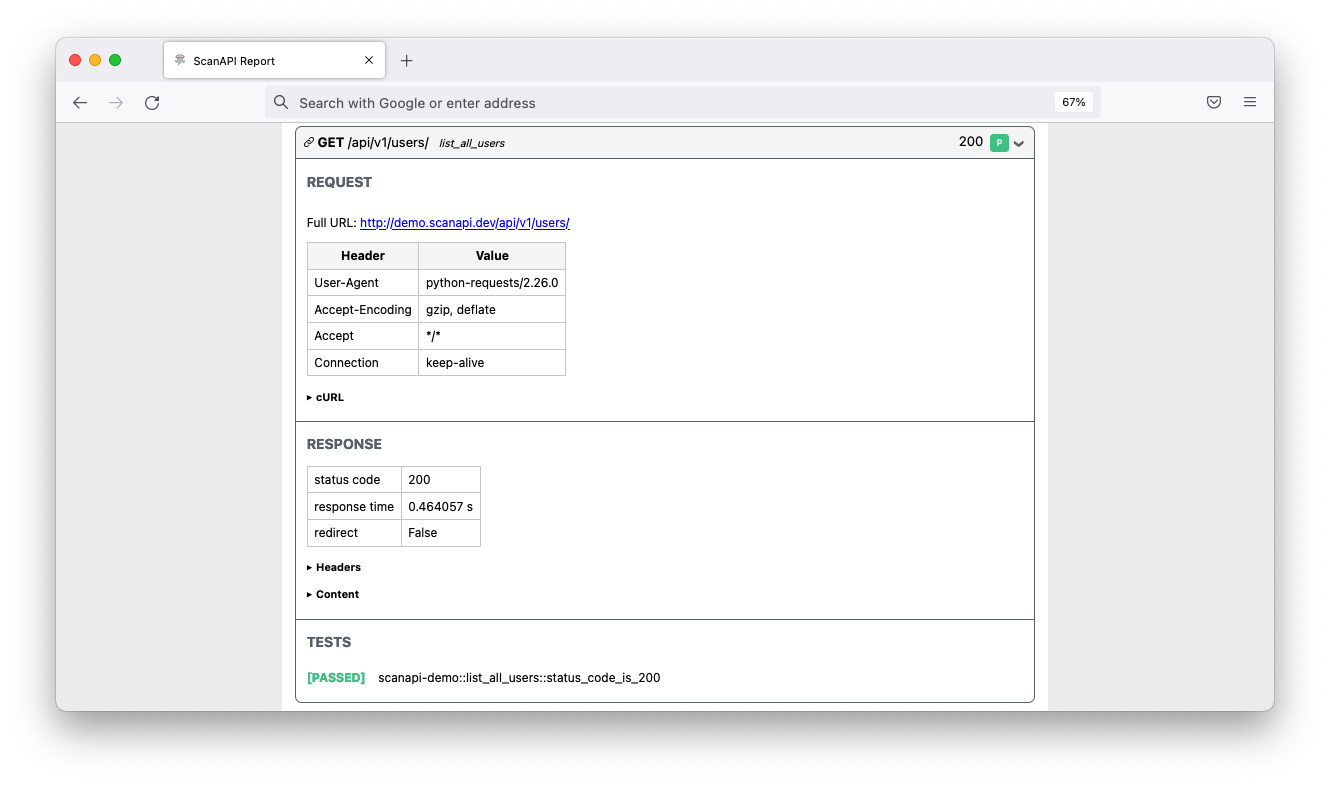
Security News
Research
Data Theft Repackaged: A Case Study in Malicious Wrapper Packages on npm
The Socket Research Team breaks down a malicious wrapper package that uses obfuscation to harvest credentials and exfiltrate sensitive data.

A library for your API that provides:
Given an API specification, written in YAML/JSON format, ScanAPI hits the specified endpoints, runs the test cases, and generates a detailed report of this execution - which can also be used as the API documentation itself.
With almost no Python knowledge, the user can define endpoints to be hit, the expected behavior for each response and will receive a full real-time diagnostic report of the API!
$ pip install scanapi
You will need to write the API's specification and save it as a YAML or JSON file. For example:
endpoints:
- name: scanapi-demo # The API's name of your API
path: http://demo.scanapi.dev/api/v1 # The API's base url
requests:
- name: list_all_users # The name of the first request
path: users/ # The path of the first request
method: get # The HTTP method of the first request
tests:
- name: status_code_is_200 # The name of the first test for this request
assert: ${{ response.status_code == 200 }} # The assertion
And run the scanapi command
$ scanapi run <file_path>
Then, the lib will hit the specified endpoints and generate a scanapi-report.html file with the report results.


The full documentation is available at scanapi.dev
You can find complete examples at scanapi/examples!
This tutorial helps you to create integration tests for your REST API using ScanAPI
Collaboration is super welcome! We prepared the Newcomers Guide to help you in the first steps. Every little bit of help counts! Feel free to create new GitHub issues and interact here.
Let's build it together 🚀🚀
FAQs
Automated Testing and Documentation for your REST API
We found that scanapi demonstrated a healthy version release cadence and project activity because the last version was released less than a year ago. It has 2 open source maintainers collaborating on the project.
Did you know?

Socket for GitHub automatically highlights issues in each pull request and monitors the health of all your open source dependencies. Discover the contents of your packages and block harmful activity before you install or update your dependencies.

Security News
Research
The Socket Research Team breaks down a malicious wrapper package that uses obfuscation to harvest credentials and exfiltrate sensitive data.

Research
Security News
Attackers used a malicious npm package typosquatting a popular ESLint plugin to steal sensitive data, execute commands, and exploit developer systems.

Security News
The Ultralytics' PyPI Package was compromised four times in one weekend through GitHub Actions cache poisoning and failure to rotate previously compromised API tokens.